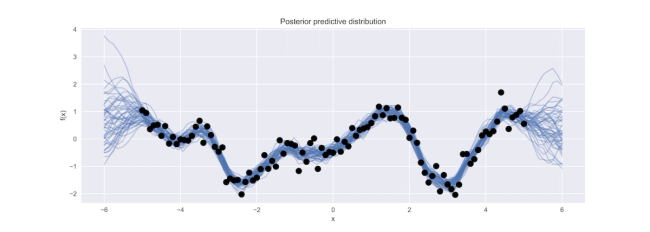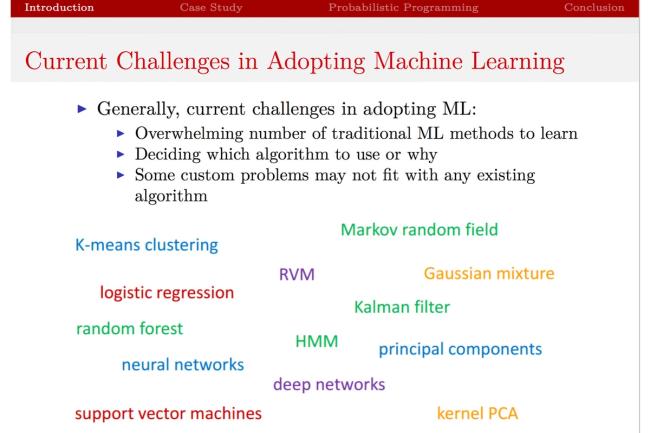Subject archive for "model-development," page 8

Humans in the Loop
Humans and Machines: SciFi or Already Commonplace?
By Paco Nathan9 min read

Recommender Systems through Collaborative Filtering
This is a technical deep dive into the collaborative filtering algorithm and how to use it in practice.
By Manojit Nandi15 min read

Sampling Based Methods for Class Imbalance in Datasets
Imagine you are a medical professional who is training a classifier to detect whether an individual has an extremely rare disease. You train your classifier, and it yields 99.9% accuracy on your test set. You're overcome with joy by these results, but when you check the labels outputted by the classifier, you see it always outputted "No Disease," regardless of the patient data. What's going on?!
By Manojit Nandi11 min read

Fitting Gaussian Process Models in Python
A common applied statistics task involves building regression models to characterize non-linear relationships between variables. It is possible to fit such models by assuming a particular non-linear functional form, such as a sinusoidal, exponential, or polynomial function, to describe one variable's response to the variation in another. Unless this relationship is obvious from the outset, however, it involves possibly extensive model selection procedures to ensure the most appropriate model is retained. Alternatively, a non-parametric approach can be adopted by defining a set of knots across the variable space and use a spline or kernel regression to describe arbitrary non-linear relationships. However, knot layout procedures are somewhat ad hoc and can also involve variable selection. A third alternative is to adopt a Bayesian non-parametric strategy, and directly model the unknown underlying function. For this, we can employ Gaussian process models.
By Chris Fonnesbeck27 min read

Model-Based Machine Learning and Probabilistic Programming in RStan
In this recorded webcast, Daniel Emaasit introduces model-based machine learning and related concepts, practices and tools such as Bayes' Theorem, probabilistic programming, and RStan.
By Daniel Chalef1 min read

Data Science Platform: What is it? Why is it Important?
As more companies recognize the need for a [data science platform], more vendors are claiming they have one. Increasingly, we see companies describing their product as a “data science platform” without describing the features that make platforms so valuable. So we wanted to share our vision for the core capabilities a platform should have in order for it to be valuable to data science teams.
By Nick Elprin7 min read
Subscribe to the Domino Newsletter
Receive data science tips and tutorials from leading Data Science leaders, right to your inbox.
By submitting this form you agree to receive communications from Domino related to products and services in accordance with Domino's privacy policy and may opt-out at anytime.